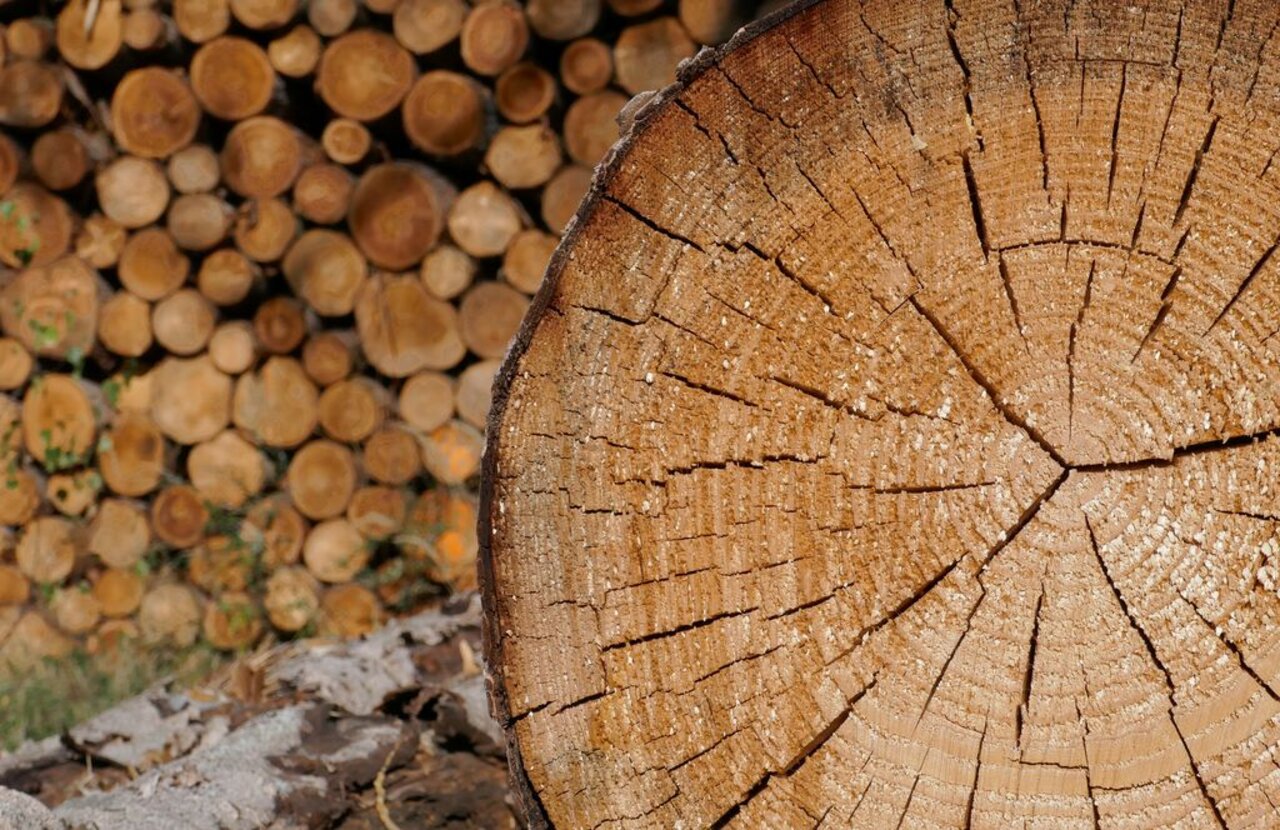Project
Charter for Wood 2.0

Charter for Wood 2.0 - Management, monitoring and derivation of policy recommendations to support the efficient material utilisation of wood from sustainable forestry to protect the climate and conserve finite resources
The Charter for Wood 2.0 aims to increase the contribution of sustainable forestry and wood use to climate change mitigation. It contributes to the implementation of the Federal Government’s Climate Action Plan 2050. Strengthening value creation in the forestry & wood cluster and conserving finite resources through sustainable and efficient wood use are further key objectives.
Background and Objective
The Charter for Wood 2.0 builds on the Federal Government’s Forest Strategy 2020. The Charter aims to develop measures that will strengthen the contribution of sustainable wood use to climate change mitigation, value creation and efficient resource utilisation. Sustainable forestry is a fundamental principle of the Charter, because the forest is far more than the sum of its trees and is more than just a source of wood.
- Using wood in urban and rural construction
- The potential of wood in the bioeconomy
- Material and energy efficiency
- Forests and wood as resources
- The forestry & wood cluster
- Forests and wood in society
Moreover, research and development acts as a cross-sectoral issue, which is addressed by all working groups in the context of their respective fields of action. The Thünen Institute accompanies the Charter process scientifically and conducts its evaluation.
Target Group
The Charter for Wood 2.0 is implemented through a dialogue process led by actors from industry, science, governmental and non-givernmental organisations. Strategically, the process is guided by a steering group.
Approach
Six thematic working groups, composed ofrepresentatives of the different actors, develop measures and recommendations in the following fields of action:
- Using wood in urban and rural construction
- The potential of wood in the bioeconomy
- Material and energy efficiency
- Forests and wood as resources
- The forestry & wood cluster
- Forests and wood in society
- Research and development. This boundary theme is dealt with by all working groups.
The Thünen Institute guides and evaluates the Charta process (methodology in Thünen Report 68). The evaluation’s focus is the long-term support of learning and decision processes in the course of the Charter’s implementation. For this purpose, different methods and levels of analysis are combined. The evaluation concept was developed in coordination with the Charter actors and encompasses three elements:
- An outcome-oriented evaluation, which a) employs monitoring indicators to analyse the development of important variables in the Charter’s fields of action and b) conducts in-depth analyses to examine the causes of developments.
- A process-oriented evaluation, which a) reflects on results and procedures of the Charter process and b) identifies options for the further development of the process.
- Short analyses of external framework conditions which may prove relevant for the Charter process in the future, e.g. on the level of EU legislation.
Preliminary Results
All CfH2.0 Publications can be found in the Charta für Holz 2.0 media library.
Outputs related to the evaluation:
- Kennzahlenbericht 2019, 2021, 2023
- Statusbericht 2020, 2022
- In-depth studies: Bauen mit Holz in Deutschland, a sustainable circular bio-economy for the forestry sector
Project Brief
Links and Downloads
https://www.charta-fuer-holz.de
Thünen-Contact

Involved Thünen-Partners
- Bolte, Andreas WO Institute of Forest Ecosystems
- Iost, SusanneWF Institute of Forestry
- Jochem, DominikWF Institute of Forestry
- Krause, AndreasHF Institute of Wood Research
- Liesebach, MirkoFG Institute of Forest Genetics
- Riedel, Thomas WO Institute of Forest Ecosystems
- Rüter, Sebastian HF Institute of Wood Research
- Schütt, FokkoHF Institute of Wood Research
- Schweinle, Jörg WF Institute of Forestry
- Weimar, Holger WF Institute of Forestry
Involved external Thünen-Partners
-
Bundesministerium für Ernährung und Landwirtschaft
(Bonn, Deutschland)
Duration
5.2017 - 12.2030
More Information
Project status:
ongoing
Publications to the project
- 0
Iost S, Lüdtke J (2025) Transformation der Holzwirtschaft zu einer zirkulären Bioökonomie : Auswertung eines Workshops im Rahmen der Charta für Holz 2.0 im Dialog 2024 „Holz im Kreislauf - Treiber für Innovation!“. Braunschweig: Johann Heinrich von Thünen-Institut, 40 p, Thünen Working Paper 264, DOI:10.3220/253-2025-9
- 1
Schmitz N, Bolte A, Iost S, Jochem D, Riedel T, Rüter S, Weimar H, Lüdtke J (2024) Charta für Holz 2.0 : Kennzahlenbericht 2022/2023 Forst & Holz. Gülzow: Fachagentur Nachwachsende Rohstoffe, 58 p
- 2
Schmitz N, Krause A, Lüdtke J (2023) Critical review on a sustainable circular bio-economy for the forestry sector = Zirkuläre Bioökonomie in der Forst- und Holzwirtschaft für eine nachhaltige Entwicklung - Eine wissenschaftliche Einordnung. Braunschweig: Johann Heinrich von Thünen-Institut, 88 p, Thünen Rep 109, DOI:10.3220/REP1684154771000
- 3
Schmitz N, Lüdtke J, Iost S, Jochem D, Polley H, Rüter S, Weimar H, Maack C (2022) Charta für Holz 2.0 : Kennzahlenbericht 2021 Forst & Holz [online]. Gülzow: Fachagentur Nachwachsende Rohstoffe, 48 p, zu finden in <https://www.charta-fuer-holz.de/fileadmin/charta-fuer-holz/dateien/service/mediathek/Web_Kennzahlenbericht_2021.pdf> [zitiert am 10.11.2022]
- 4
Purkus A, Lüdtke J, Jochem D, Rüter S, Weimar H (2020) Entwicklung der Rahmenbedingungen für das Bauen mit Holz in Deutschland: Eine Innovationssystemanalyse im Kontext der Evaluation der Charta für Holz 2.0. Braunschweig: Johann Heinrich von Thünen-Institut, 102 p, Thünen Rep 78, DOI:10.3220/REP1591254742000
- 5
Purkus A, Lüdtke J, Becher G, Jochem D, Polley H, Rüter S, Weimar H, Maack C (2019) Charta für Holz 2.0 : Kennzahlenbericht 2019 Forst & Holz [online]. 1. Aufl. Gülzow: FNR, 45 p, zu finden in < https://www.charta-fuer-holz.de/fileadmin/charta-fuer-holz/dateien/service/mediathek/WEB_RZ_Kennzahlenbericht_2019.pdf> [zitiert am 17.09.2019]
- 6
Purkus A, Lüdtke J, Becher G, Dieter M, Jochem D, Lehnen R, Liesebach M, Polley H, Rüter S, Schweinle J, Weimar H, Welling J (2019) Evaluation der Charta für Holz 2.0: Methodische Grundlagen und Evaluationskonzept. Braunschweig: Johann Heinrich von Thünen-Institut, 68 p, Thünen Rep 68, DOI:10.3220/REP1552650032000

![[Translate to English:] https://www.charta-fuer-holz.de/](/media/_processed_/a/0/csm_CfH2_Logo_RGB_de042ccd49.jpg)





